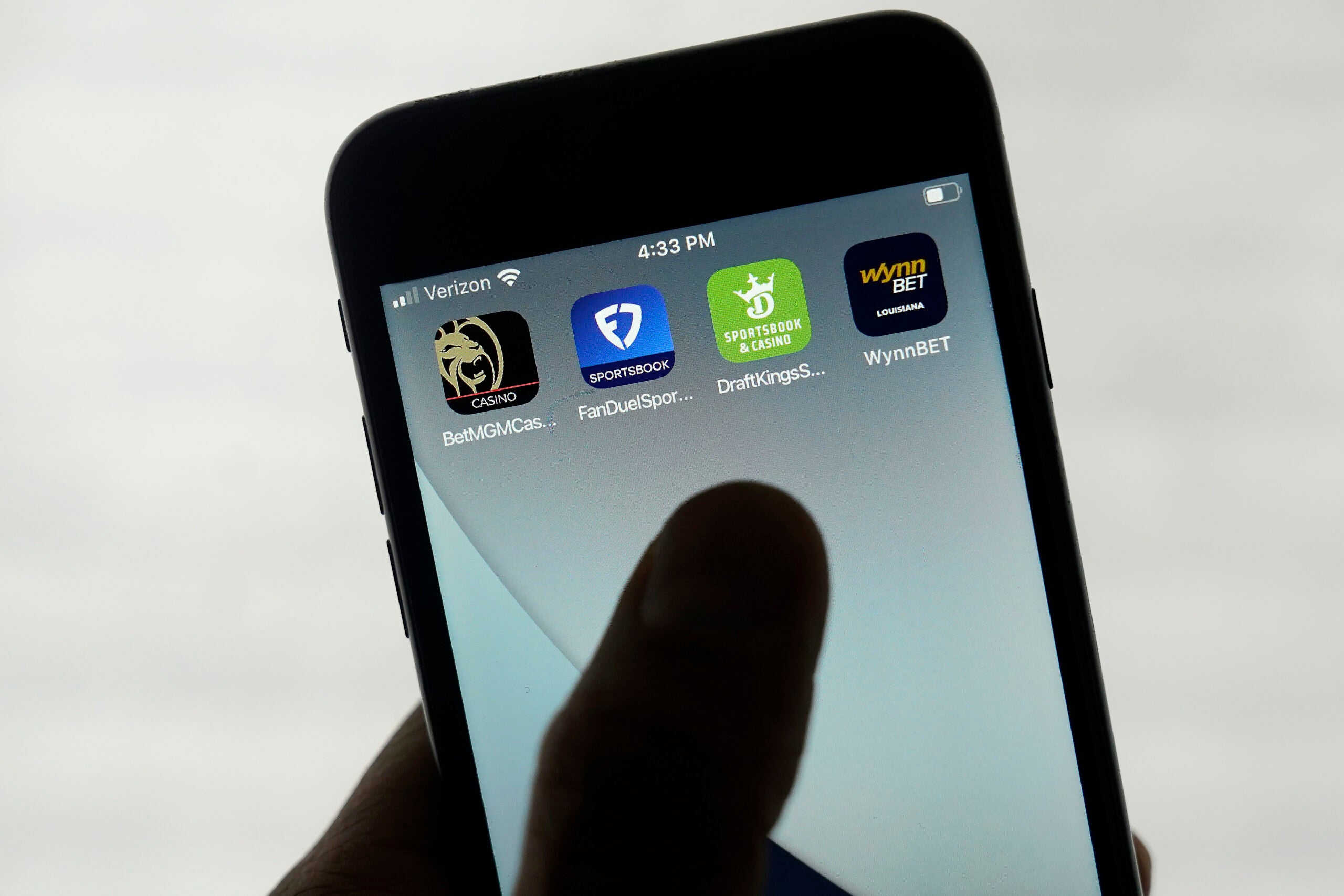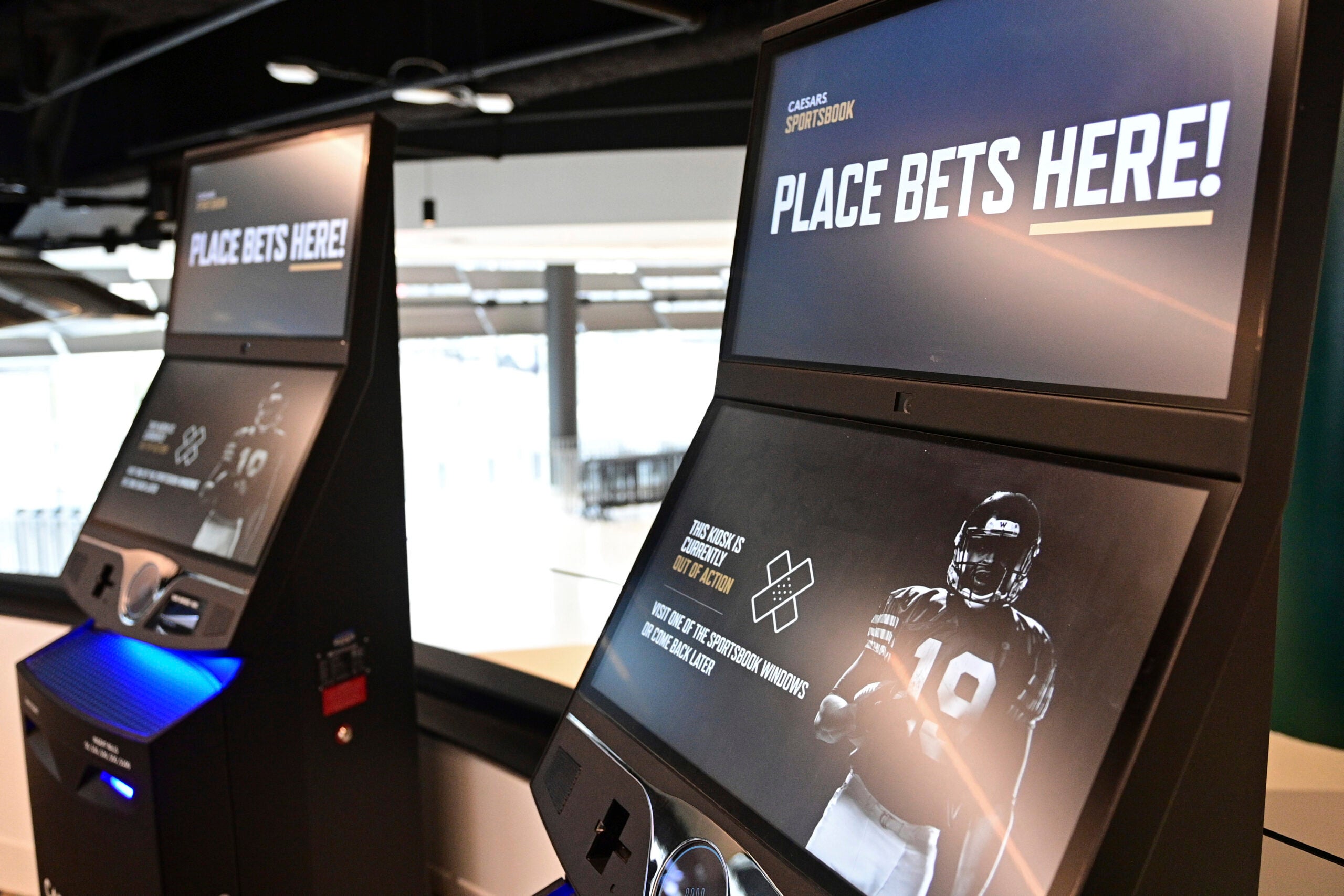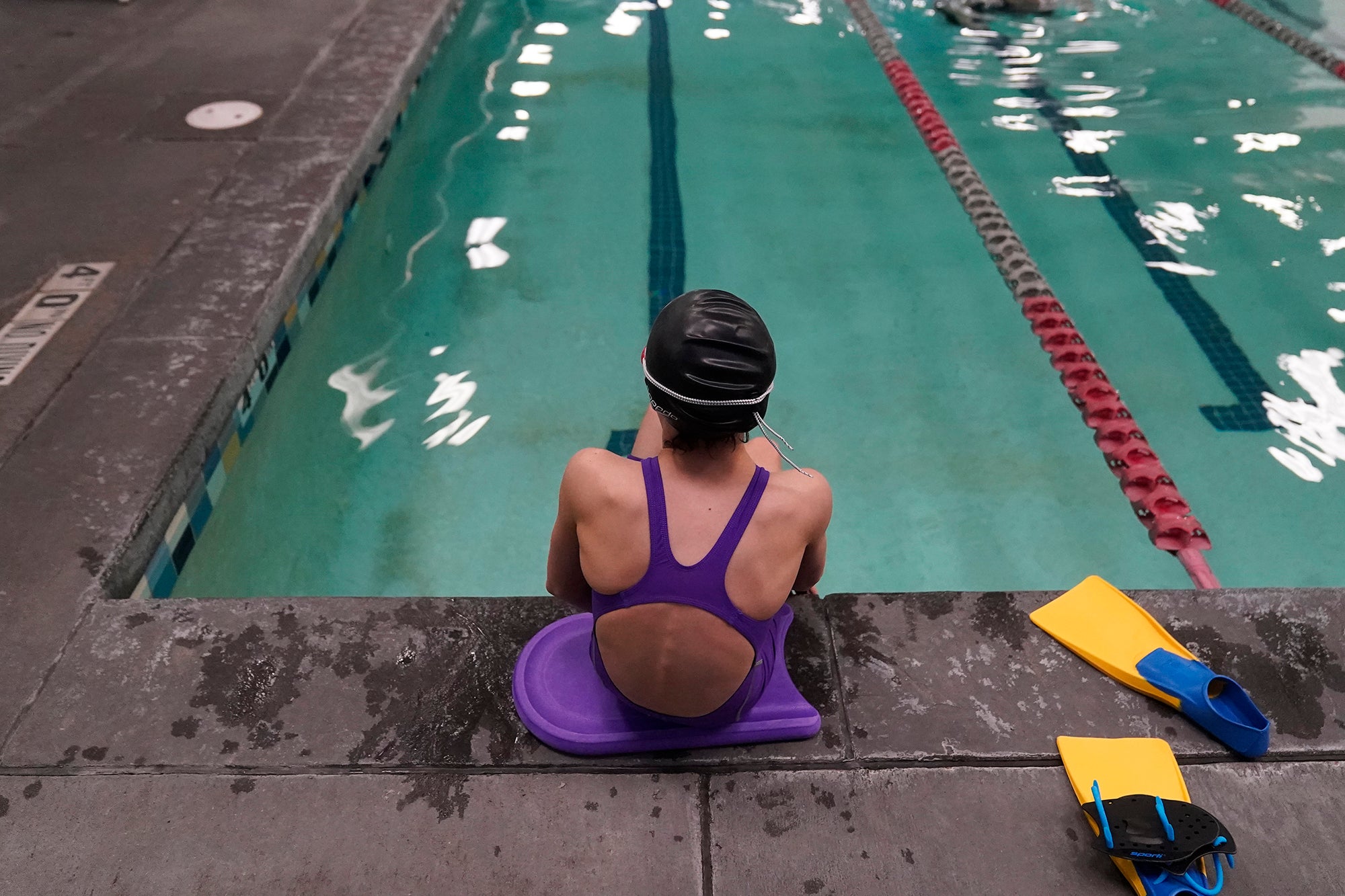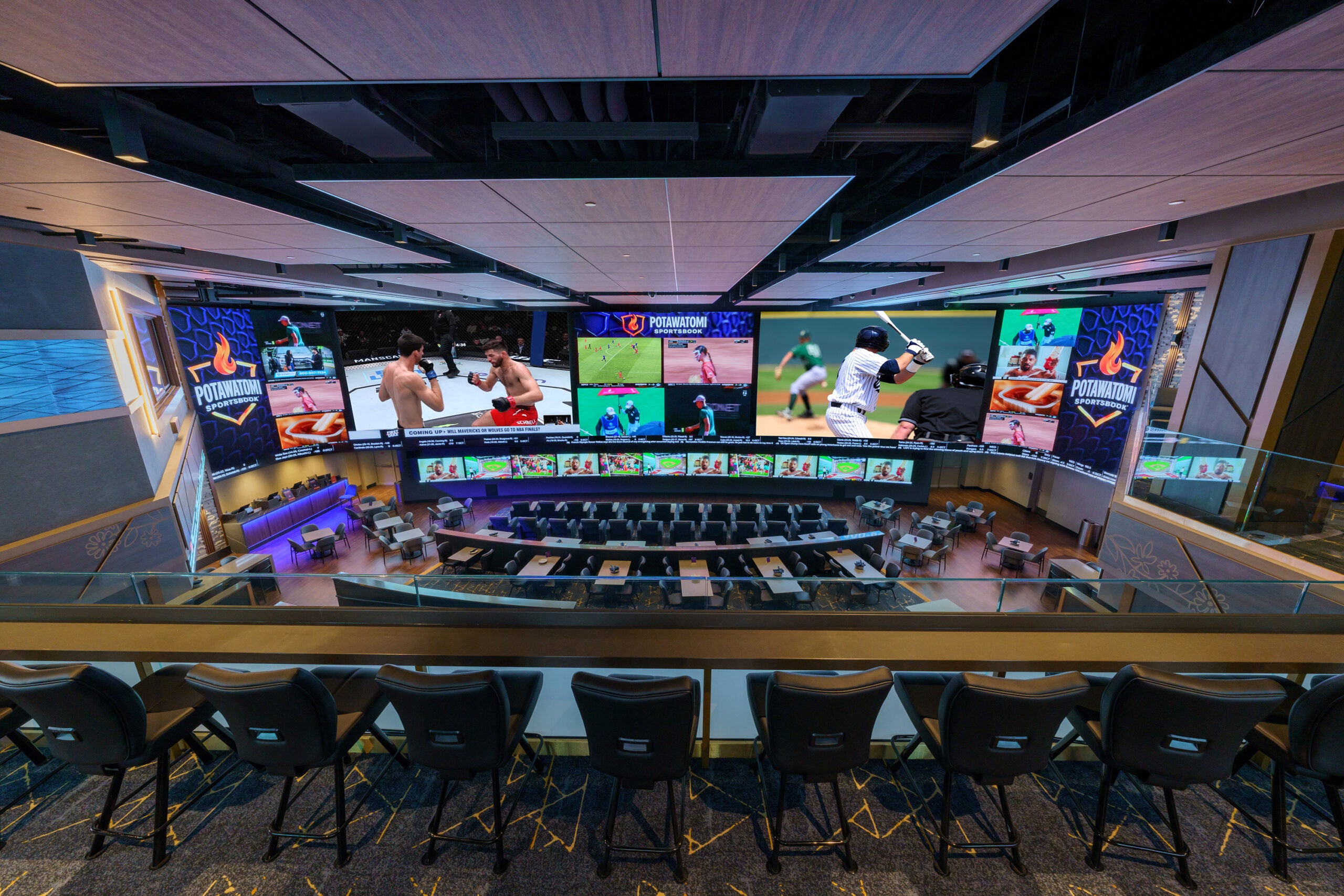Jason Lopez’s studies of sports betting throughout history show this: The act of traveling to gamble is about as old as gambling itself.
And modern Wisconsin is no different. Residents dash across state lines to Illinois, Iowa or Michigan to put down money legally from their phones.
As the Super Bowl draws near and sports betting swells, businesses near the Wisconsin border could see more customers — or at least more traffic in their parking lots. Professional football’s title game is consistently among the country’s most-bet sporting events.
Stay informed on the latest news
Sign up for WPR’s email newsletter.
Lopez, a University of Wisconsin-Madison assistant professor of media and cultural studies, wonders if the recent steps to expand sports betting in Wisconsin’s neighbors could pressure the Badger State to change its laws.
“It is commonly the case that once some state or region opens up gambling and legalizes it, it will commonly siphon people from the surrounding areas, which then will occur like a domino effect where widespread legalization starts to happen,” Lopez said recently on WPR’s “Central Time.”
Wisconsin is one of 38 states with some form of live, legalized sports betting, according to the American Gaming Association. Wisconsin differs from some neighbors by only allowing sports betting at select locations — rather than anywhere through apps on mobile devices.
A 2018 U.S. Supreme Court decision eliminated the federal ban on sports betting, effectively allowing states to set individual regulations. Some states ban betting on college sports, for example.
Bans on sports gambling have historically come from skepticism about the role of bookmakers, said Lopez, who studies the cultural impacts of sports betting. Bookmakers set the figures people can bet on, as well as take and return money.
But gambling took place even in states with bans, Lopez said.
“It still was a vibrant culture,” he said. “Even though sports betting was largely illegal in the United States, it was still a very popular way that people would engage with sports. It was very accepted and normalized within those groups.”

The legalization of sports betting has profoundly impacted sports itself, Lopez said. His research underscores how sports, media and gaming have “grown together, developed together and responded to each other along the way.”
Injury reports are an example of how sports betting influences sports. While fans are now accustomed to receiving daily updates on the health of athletes, it’s easy to imagine another world where leagues decide to withhold such personal information, Lopez said.
Some people separate betting from fandom and culture broadly, Lopez said. But he sees it all closely tied together. Sports betting is becoming both more popular and more visible, Lopez said. Gambling ads appear throughout broadcasts and online streaming services. NBA star LeBron James recently announced a partnership with DraftKings, a sports betting company.
“We are seeing it more because it has become legitimized. It’s sort of coming out of the shadows,” Lopez said. “It’s on ESPN, and people will openly talk about it during broadcasts. So, it’s definitely become normalized in a way.”
For help: Connect with services for excessive gambling by calling 1-800-GAMBLER or visiting the National Problem Gambling Helpline website.
Editor’s note: This article has been updated to correct a typo in a quote attributed to Jason Lopez. The correct word is “siphon.”
Wisconsin Public Radio, © Copyright 2025, Board of Regents of the University of Wisconsin System and Wisconsin Educational Communications Board.


